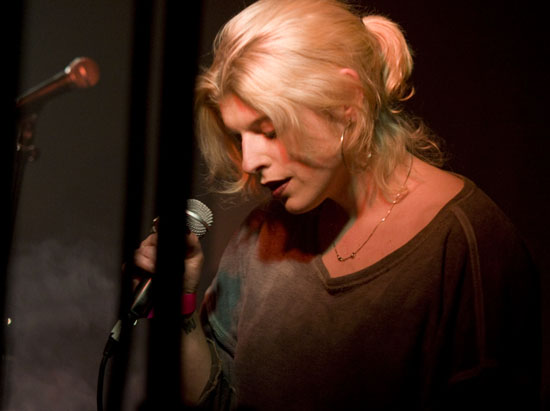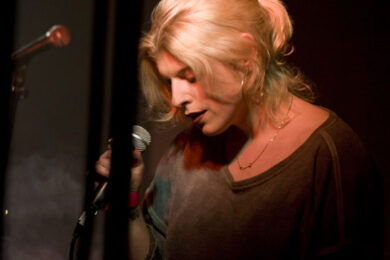St Leonard’s Shoreditch – or Shoreditch Church, as it is now more prosaically known – was built in the early 17th Century on the site of a far earlier Saxon building. Since its earliest days, it was a place on the edge, situated among the marshy lands outside the city walls. Buried in the church is James Burbage, who built Britain’s first theatre here in 1576. It was outside the jurisdiction of the city, away from the censorious attentions of officialdom. These days, as Shoreditch goes far beyond the artistic period gentrification into a resort for yuppies and weekend bingers, Shoreditch Church remains quietly shabby, paint peeling from its walls, scaffolding climbing up the tower, the enlightened ministry of its vicar allowing the homeless to shelter beneath the pillars of its porch, and concerts to take place where on a Sunday morning he preaches. In the crypt, where coffins are collapsing and spilling their contents, he has found Tesco bags full of bones. Nobody seems to quite know where they came from.
It is the perfect place to see Salem make their first major foray onto a UK stage – religious ceremony is always a private experience in a ritual, public space, and so it feels tonight – complete with massive debate as to the quality of the sermon afterwards. For some time to come, Salem are going to have to deal with a lot more cynicism from weary hipsters and the grubby keyboards of the asocial internet dribblers. But for me, what Salem are is an unsettling, introspective and gothic (in the proper sense) outfit in a very European tradition – their opening blast is as much Godflesh or NON as those they’re accused of exploiting. And so it goes on, their short set imbued with a dark, reflective sense of decadence and romance. Salem have always been matter of fact about their sexuality, their drug use, rather than using it as a talking point, or distraction from the music. This is not the blaring glorification of dysfunction that all too often surrounds music. Instead, as explored by Kev Kharas in his brilliant interview with Salem in The Stool Pigeon, they do genuinely seem like three people with a curious bond that might be said to be love. This in part explains why there’s no fronting tonight. Short hair, a tough face of experience but wearing a shiny sports jacket and crucifix, John Donoghue scrapes blithely at his guitar. Heather Marlatt might be wearing black leather trousers, but at first she’s an anonymous figure lost over by the choir pews. Even when John Holland comes on to rap, he’s hardly an aggressive presence – a grasp at his crotch is so half hearted he looks like a toddler too shy to tell teacher he’s busting for a pee, and with his lank hair and big coat he resembles Jay, pal of Silent Bob. He sounds, though, like a live and treacly remix of something from Sisters Of Mercy’s Some Girls Wander By Mistake.
Yet there’s nothing in this description of shyness and diffidence that should be seen as a criticism. Salem are too honest for that. ‘Sick’ hisses and fizzes around, the synthesised choir sounding as if they’re singing from the company of the great majority. ‘Frost’, where Marlatt comes to fore but keeps glancing nervously back to her friends, has a distracted, cold and ghostly air, as if someone late of this parish had floated up to see what all the fuss was about.
Yes, you could say this is flawed, tentative at times, slightly unsure of itself. But to be fair to Salem, they have had to unpick the density of King Night and present it to a live setting very, very quickly. It’s also potentially just a pointer of quite how far Salem could go – moments already sounds massive, but imagine the martial beats of ‘Redlight’ played out by a regimental band, the choir stalls filled and singing out to the plastered ceiling. The same goes for ‘King Night’, the synths sounding like Gary Numan as he takes the airlane to the pearly gates. It’s also very deft, almost pretty in its busyness, delicately played rather than squeezed out of presets and computer discs and a million miles from the brutal compression of King Night itself. If anything, Salem live in November 2010 makes me remember early performances from These New Puritans, their transatlantic kin. TNPs too were criticised for their audacity, for reaching beyond their station, for perhaps trying things a little too soon. And just look where they are now.
As the choral parts rise with the clouds of smoke, a light bathes the back of the church in yellow, illuminating the rough wooden crucifix, and you realise that Salem deserve more than your snide pontificating or accusations of cultural piracy. The finest track, ‘Killer’, is a massive industrial wash, Donoghue’s deeper vocals cremated somewhere within. It sounds sublime. Salem are possessed of a bleak euphoria, a complex sensuality that so few manage to achieve.



